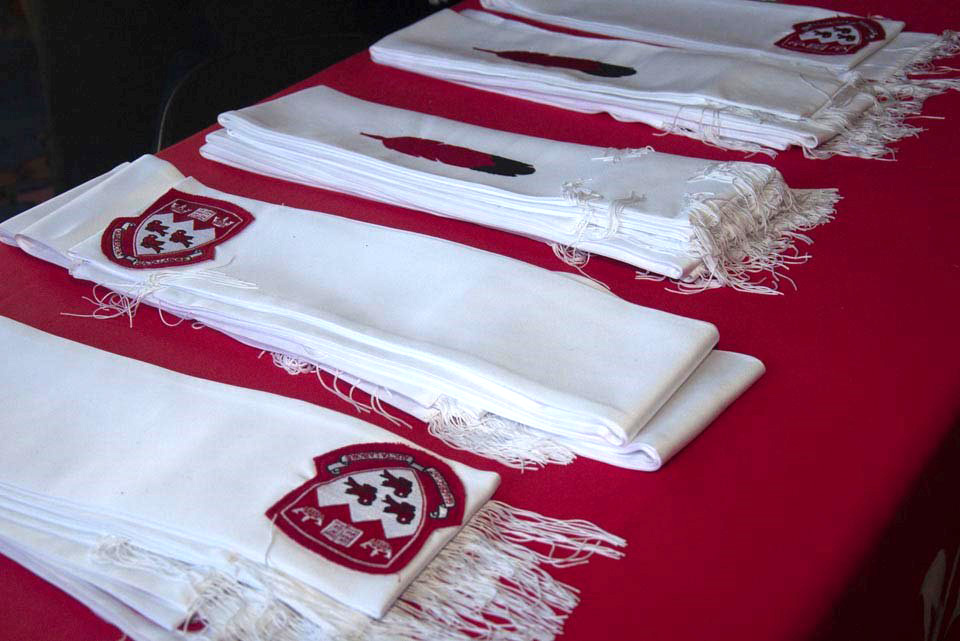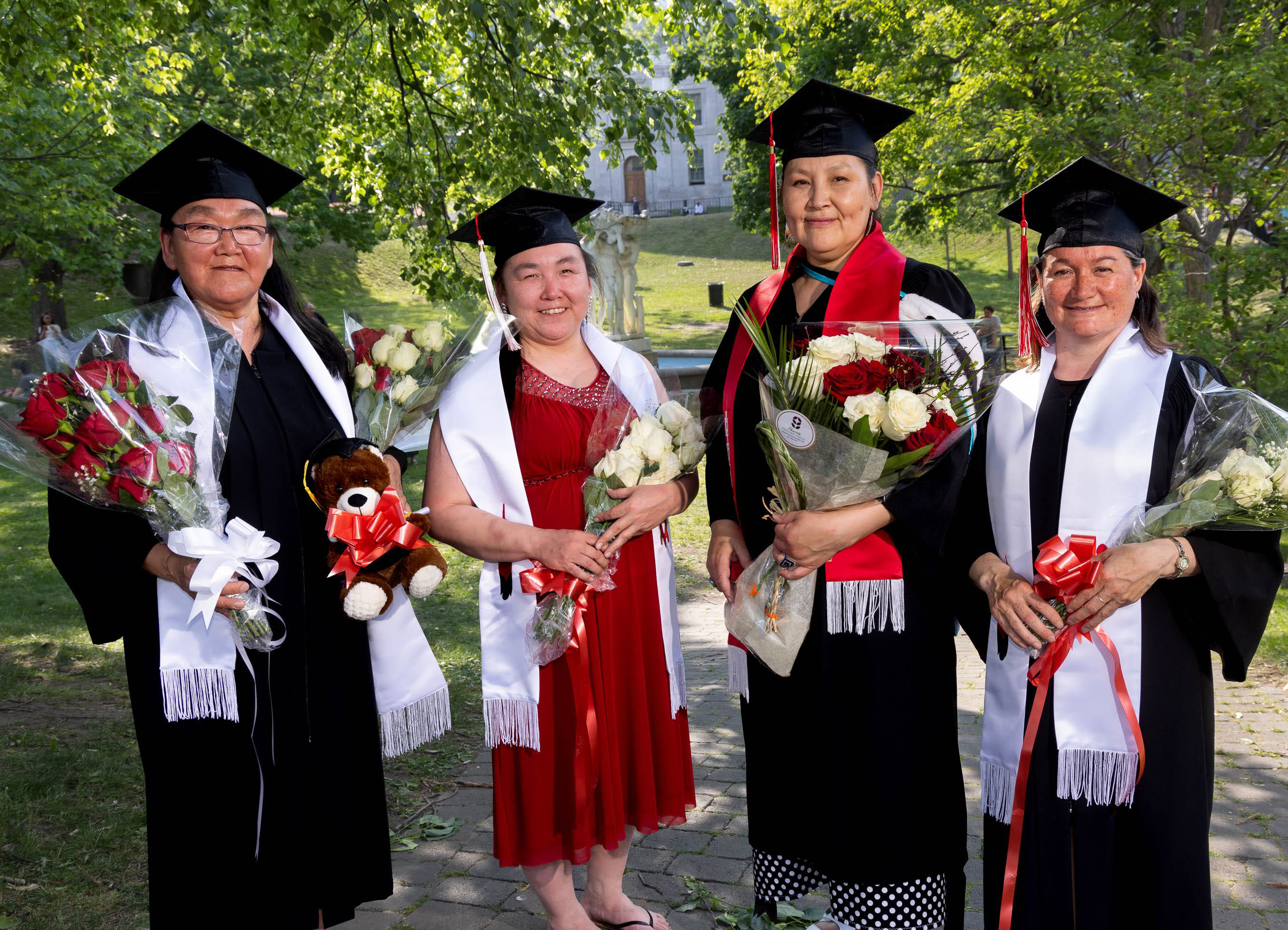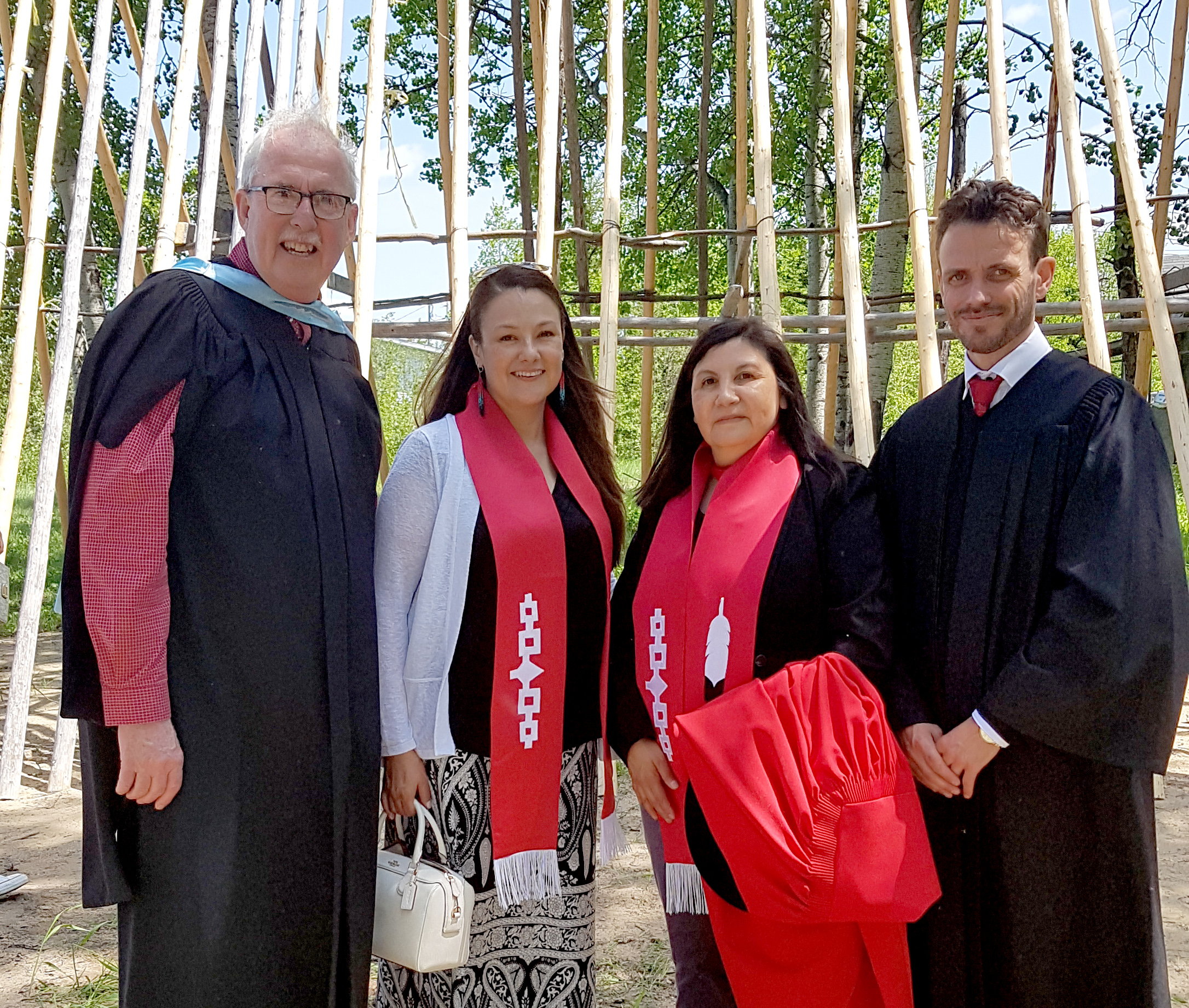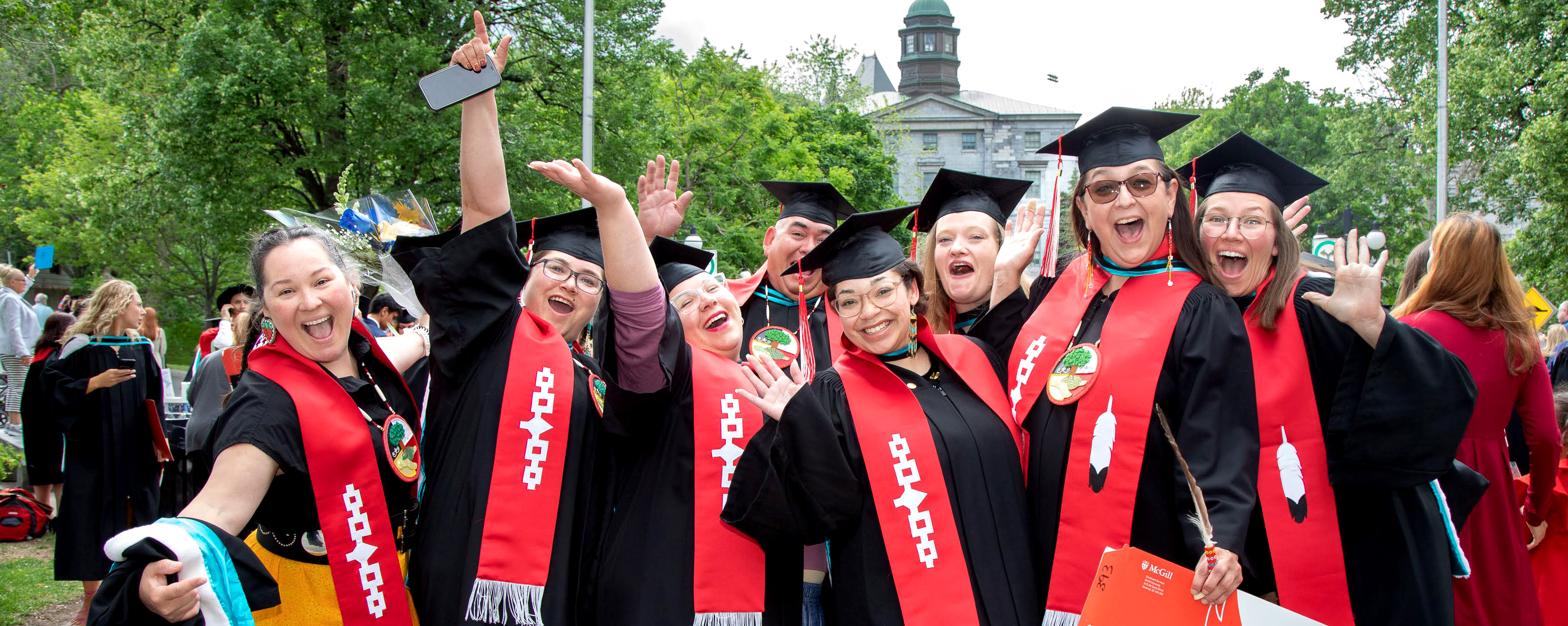All Partners' Summer Institute
 Each July, OFNIE hosts its All Partners' Summer Institute which brings together Indigenous students from across the province who travel from their home communities to McGill University’s downtown campus. During this two-week academic experience, students from different Cree, Inuk, Mohawk, and other Indigenous backgrounds have the chance to take a course together. Courses are taught by McGill-affiliated Indigenous and non-Indigenous experts in their fields. Courses offered in past sessions include Media Technology and Education (EDEC 262), Geography History and Citizenship (EDEE 280), and Indigenous Family Dynamics and Support Institutions (EDEM 502). As part of the Summer Institute, OFNIE students live on campus, get to connect with fellow students from other communities, and enjoy visiting Montreal.
Each July, OFNIE hosts its All Partners' Summer Institute which brings together Indigenous students from across the province who travel from their home communities to McGill University’s downtown campus. During this two-week academic experience, students from different Cree, Inuk, Mohawk, and other Indigenous backgrounds have the chance to take a course together. Courses are taught by McGill-affiliated Indigenous and non-Indigenous experts in their fields. Courses offered in past sessions include Media Technology and Education (EDEC 262), Geography History and Citizenship (EDEE 280), and Indigenous Family Dynamics and Support Institutions (EDEM 502). As part of the Summer Institute, OFNIE students live on campus, get to connect with fellow students from other communities, and enjoy visiting Montreal.
Scarf Ceremony
 Prior to McGill Convocations, OFNIE students receive their scarves as a special part of their regalia and can participate in a Virtual Scarf Ceremony (via Zoom) organized by First Peoples’ House, where Indigenous knowledge-keepers and University leadership offer heartfelt greetings and words of wisdom to the graduands. In recognition of their achievements, white scarves are presented to graduands from certificate programs; red scarves to graduands from degree programs.
Prior to McGill Convocations, OFNIE students receive their scarves as a special part of their regalia and can participate in a Virtual Scarf Ceremony (via Zoom) organized by First Peoples’ House, where Indigenous knowledge-keepers and University leadership offer heartfelt greetings and words of wisdom to the graduands. In recognition of their achievements, white scarves are presented to graduands from certificate programs; red scarves to graduands from degree programs.
Read more about the scarf symbolism
Kahnawake-based designer Tammy Beauvais from the Mohawk Nation created the scarves, which incorporate symbols important to indigenous culture. The eagle, thought to serve as a messenger between First Peoples and the Creator, is represented with a feather on both scarves. The bestowing of an eagle feather recognizes the good work of others and is a gesture expressed with great significance.
In honour of the traditional Mohawk territory on which McGill University sits, an appliqué of the Hiawatha wampum belt is sewn onto the red scarves and represents the founding of the League of Six Nations, which includes the Mohawk, Oneida, Onondaga, Cayuga, and Seneca and the Tuscarora nations.
The turtle, a symbol of creation for many First Nations is represented on the white certificate scarves and is meant to represent all the Original Peoples of North America. The Iroquois, who tell that the earth was created on the turtle’s back, inspired the reference to North America as Turtle Island by Indigenous People. The McGill crest is placed at the centre of the scarves.
Convocation Festivities
 OFNIE convocations happen both in Montreal and In-Community with graduands invited to take part in both celebrations. In addition to students opting to attend McGill University's fall convocation at Montreal's Place des Arts or spring convocation on McGill's downtown campus, recent OFNIE graduation ceremonies have taken place in Kahnawake, Listuguj, Pikogan, Kuujjuaq, Kuujjuarapik, Inukjuak, and Kangirsujuaq. As part of these festivities, graduating OFNIE students are recognized as they receive their degrees and certificates in a ceremony with inspiring speakers and honoured guests. A luncheon, picnic, or feast accompanies the ceremony for the graduating class to commemorate the occasion.
OFNIE convocations happen both in Montreal and In-Community with graduands invited to take part in both celebrations. In addition to students opting to attend McGill University's fall convocation at Montreal's Place des Arts or spring convocation on McGill's downtown campus, recent OFNIE graduation ceremonies have taken place in Kahnawake, Listuguj, Pikogan, Kuujjuaq, Kuujjuarapik, Inukjuak, and Kangirsujuaq. As part of these festivities, graduating OFNIE students are recognized as they receive their degrees and certificates in a ceremony with inspiring speakers and honoured guests. A luncheon, picnic, or feast accompanies the ceremony for the graduating class to commemorate the occasion.
Students on Ice Expedition
McGill Education students have the opportunity to participate in the Students on Ice Expedition. OFNIE and the Kativik Ilisarniliriniq have been involved with the Students on Ice Foundation, working to educate today’s youth about Nunavik life (in Northern Quebec), to support the continued cultural growth through education, and to inspire initiatives that contribute to global sustainability. Established in 2000, the Students on Ice Foundation is internationally recognized as a pioneer and leader in Polar Education.
Through this collaboration, teachers from Nunavik participate as staff on the expedition, while also gaining credits towards their teacher certification with the Office of First Nation and Inuit Education.
Students on Ice 2019: Revitalizing Inuit Culture
Students on Ice 2018: Connecting with the Land

